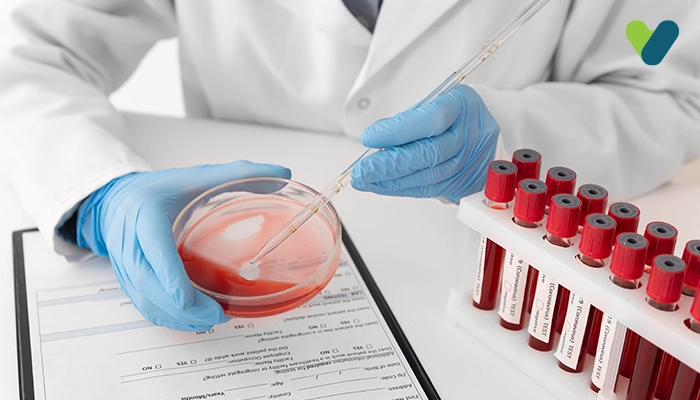The Glycosylated Hemoglobin Test is a very common test that is used to measure the amount of sugar that is there in your body over the last few months. This test is a great way to check for diabetes in a person and if their body is managing the blood sugar levels in the normal way.
In this article, we will clear any doubts or questions you may have about this type of test and help you understand why this test may be needed.
What Is a Glycosylated Hemoglobin Test?
The Glycosylated Hemoglobin Test is often known as the A1c or the HbA1c test. This test is done to check the amount of glucose that is in your blood. It can help in measuring the following -- It can help to detect prediabetes. High sugar levels in your body do not always mean that you are diabetic, it can mean that it can lead to diabetes.
- It can help in detecting diabetes which can lead to heart and other diseases, or even a stroke.
- It can also help in detecting if the diabetic person is managing the disease well.
Purpose of Glycosylated Hemoglobin Test
Diabetes can be a dangerous disease. It can go from minor to major in no time if it is not managed well. If you are suffering from this disease, it is recommended that you get the HbA1c test at least 2-4 times a year to check that the diabetes is in control. Sometimes, the doctor can ask you to take this test regularly, even at home, to check how the treatment is working. If you see any irregularities, you can consult your doctor for any changes in the treatment.If you have not been tested as diabetic and the doctor has recommended it, it means that some earlier tests or you are showing symptoms of diabetes.
Symptoms –
- Increased thirst
- Blurred vision
- Fatigue
- Frequent urination
- Always feeling hungry
- Slow healing of wounds and cuts
- Family history of diabetes
- High blood pressure
- Little or no exercise or activity
- Heart disease history
- Old age
Expectations During Glycosylated Hemoglobin Test
The glucose in your blood, if not stored, can bind to the hemoglobin and create problems. This test shows the average level of glucose in your blood for the last 3 months because red blood cells can live for about 3 months. This test is different from the Oral Glucose Tolerance Test (OGTT). This is what you should expect from this test –- Some blood samples will be collected, either from the fingertip or from your vein. (The blood collected from your fingertip is the same process as a glucose check)
- The result can be provided in just a few minutes.
- The test can be done at home or a lab. The test will take about 5 minutes, but the result can take up to 1-2 days.
- The type of diabetes you were diagnosed with
- If the provided treatment is working for you
- Your blood sugar level control
Result of Glycosylated Hemoglobin Test
The accurate result for the haemoglobin A1c level changes from person to person –- 4%-5.6% is for people who are not diabetic
- 5.7%-6.4% range shows that the person is prediabetic or has a high chance of getting the disease
- 6.5% or higher means that you are suffering from diabetes.
- If your HbA1c test level is higher than 7%, then it can become dangerous. The higher the range, the higher the risk of getting diabetes-related severe complications, like heart and eye diseases.
- A person who has suffered from diabetes for a long time may have a level above 8%.
Reliability of Glycosylated Hemoglobin Test?
This test has very little risk compared to having a traditional blood test. Either method, be it finger-pricking method or blood drawn via a syringe from your vein may cause a little bruising or pain where the needle pricked your skin. These symptoms are not a lot and go away in almost no time.Conclusion
This test is very simple and very safe; however, it is not recommended for pregnant women. The results of the HbA1c test for pregnant women may not be accurate and also this test is not used to measure gestational diabetes, which only affects pregnant women.This test is not a fasting test, so it can be done at any time of the day. If you are changing your diet or taking a new medication, this test is recommended. It will help you keep your blood sugar levels in check!


